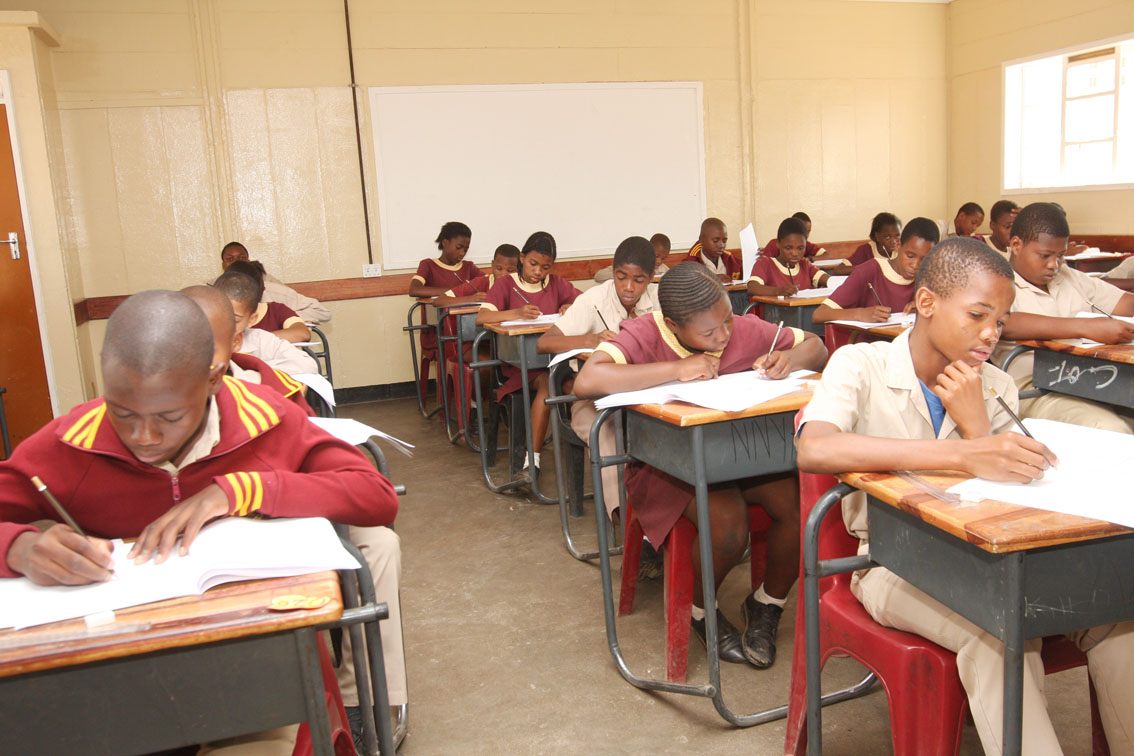Poor results worry MP
17 Jan 2013
Tati East MP, Mr Samson Guma has expressed discontent at the poor results of some schools in his constituency.
Addressing the Village Development Committee (VDC), Parents Teachers Association (PTA) and Village Extension Team (VET) in Tshesebe on Wednesday, MP Guma said despite some schools having scored as high as over 80 per cent in examination results, the situation on the ground was actually different.
He said while it was evident that one needed either an A or B pass to continue to climb the ladder of the education system, some schools continued to bask in the glory of their high pass rates when such rates were pushed up by C grades.
Citing Tshesebe Primary School as an example, he said its 87.8 per cent pass rate was not enough, as out of the figure only 49 per cent of pupils who sat for Primary School Leaving Examinations (PSLE) last year scored A and B.
He appealed to teachers, parents and all stakeholders to collaborate to increase the A and B passes in schools.
The MP observed that the Cs and Ds produced by primary schools contributed greatly to the high numbers of students who failed to perform well at secondary school level.
He implored stakeholders to address the problem, noting that it would be easier to do so at primary school level where the teacher to student ratio was lower than that of secondary schools.
However, the MP also acknowledged the fact that many factors could be blamed for the prevailing situation, citing among others, shortage of teacher accommodation, shortage of resources such as textbooks and generally unconducive learning environment.
The VDC treasurer, Mr Peter Slave said the education system was partly to blame for the failure rate of schools. He said the education system was unfair as children’s future was determined by their academic performance.
“Our education system is flawed as it drops by the wayside those who are academically-challenged. The situation should be such that children’s abilities are identified early on and efforts channeled towards what they are capable of,” he said.
School heads at Tshesebe Primary School and Thamani Junior Secondary School, Ms Kenalemang Zaba and Mr Fanta Mpha shared the view that the eight-hour working day was proving detrimental to schools’ efforts to improve their results.
Ms Zaba said since the start of the eight-hour working day for teachers, some of them often failed to complete a day’s work and in some instances resulted in teachers failing to complete the syllabus at the end of the year.
She suggested that teachers should be paid committed allowance, which should be made a component of their monthly salaries and they should be made to work as they previously did to help students.
Currently, Ms Zaba said teachers left their work at knock-off time regardless of what could be happening at that time
Mr Mpha suggested that instead of teachers being paid based on a 22-day month, they should be moved to 26 days to avoid having to pay them overtime based on the hours they have worked.
He said working overtime was failing to effectively address the situation of failure to complete work, as authorisation for teachers to work beyond their eight-hour working day was strictly controlled. ENDS
Source : BOPA
Author : Keonee Kealeboga
Location : MASUNGA
Event : VDC, PTA meeting
Date : 17 Jan 2013







